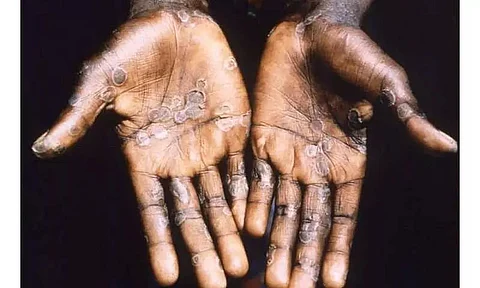
- Home
- Live Blog
- Breaking News
- Top Headlines
- Cities
- NE News
- Sentinel Media
- Sports
- Education
- Jobs

New Delhi: The Central government on May 20 began surveillance at all international entry points — airports, seaports and land border crossings and this move comes in the wake of a drastic surge in Monkeypox cases abroad.
The samples of travellers from Africa, who are showing symptoms will be sent to the National Institute of Virology (NIV) in Pune so as to conduct further investigation.
News agency ANI, quoting an official, wrote, "Send samples (to NIV, Pune) only in such cases where people display certain specific symptoms. Not samples of sick passengers."
The National Centre for Disease Control (NCDC) and the Indian Council of Medical Research (ICMR) have been directed by the centre to keep a close watch on the fresh health crisis unfolding in Europe and elsewhere, as per ANI inputs.
Meanwhile, the World Health Organisation (WHO) is set to conduct an emergency meeting on May 21 in order to discuss the recent outbreak of Monkeypox and it comes after more than 100 cases were confirmed or suspected in Europe.
Besides the United States, Canada and Australia, Monkeypox cases have now been confirmed in at least five countries - the United Kingdom, Spain Portugal, Germany and Italy. Germany has described this situation as the largest-ever outbreak in Europe.
The viral disease was initially identified in monkeys and is typically transmitted through close contact and it has rarely spread outside Africa, as a result of which this series of cases has raised serious concerns.
To make things worse, doctors fear that the monkey virus can also be transmitted through sexual intercourse. There are also reports of warnings being issued in this regard.
A section of experts has said that if one has sex with someone having monkeypox, then there is a possibility that the partner will also be affected by the disease.
Also watch: